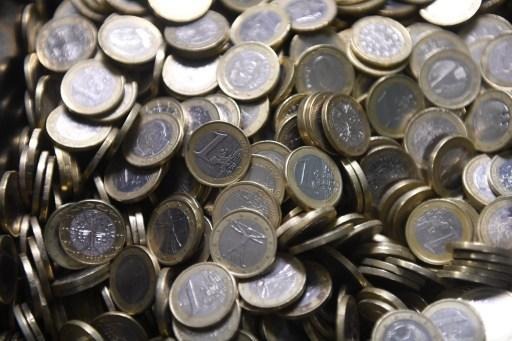Inflation across the eurozone fell by almost a full percentage point in December to an average rate of 9.2%, according to new data released on Friday by Eurostat, the EU's official statistics office.
The decline represents the second month in a row that inflation has decreased in the eurozone, after falling from 10.6% in October to 10.1% in November.
While inflation in Belgium was also registered as having fallen for the second month in a row, its overall rate of 10.2% remains significantly higher than the eurozone average. Moreover, its decline of 0.3% (from 10.5% in November) was substantially lower than that of the eurozone's average decrease.
Among eurozone countries, Latvia recorded the highest inflation rate (20.7%), while Spain posted the lowest rate (5.6%).
Inflation data for the EU as a whole has not yet been released for December. However, it is also expected to have declined, after falling from 11.5% in October to 11.1% in November.
Little room for optimism
Eurostat found that energy costs registered the highest year-on-year rise (25.7%), despite declining significantly from November (34.9%). Rather worryingly, however, Eurostat found notable price increases for many other categories of goods, including food, alcohol, and tobacco (up to 13.8% in December from 13.6% in November), industrial goods (up to 6.4% from 6.1%), and services (up to 4.4% from 4.2%).
Indeed, it is precisely this prospect of a continued increase of 'core' inflation — which strips away the impact of energy prices and unprocessed food on the overall inflation rate — as well as a possible surge in energy prices precipitated by another cold snap, which have led some economists to expect overall inflation to pick up again in the near future.
Related News
- 'Tough year': IMF predicts half of EU to be in recession in 2023
- Groceries become even more expensive, especially frozen food
"Despite the stabilisation of energy prices, we will see price increases for at least a few more months," Philippe Ledent, a Senior Economist at ING Bank, told l'Echo last month.
Europe's elevated inflation rate — and, in particular, its soaring prices for food and energy — were largely precipitated by Russia's invasion of Ukraine in February this year, which subsequently induced a severe cost of living crisis throughout the continent and, indeed, much of the rest of the world.
In December 2021, Belgium's inflation rate stood at 6.6%, while the EU's average was 5.3% and the eurozone's 5.0%.

